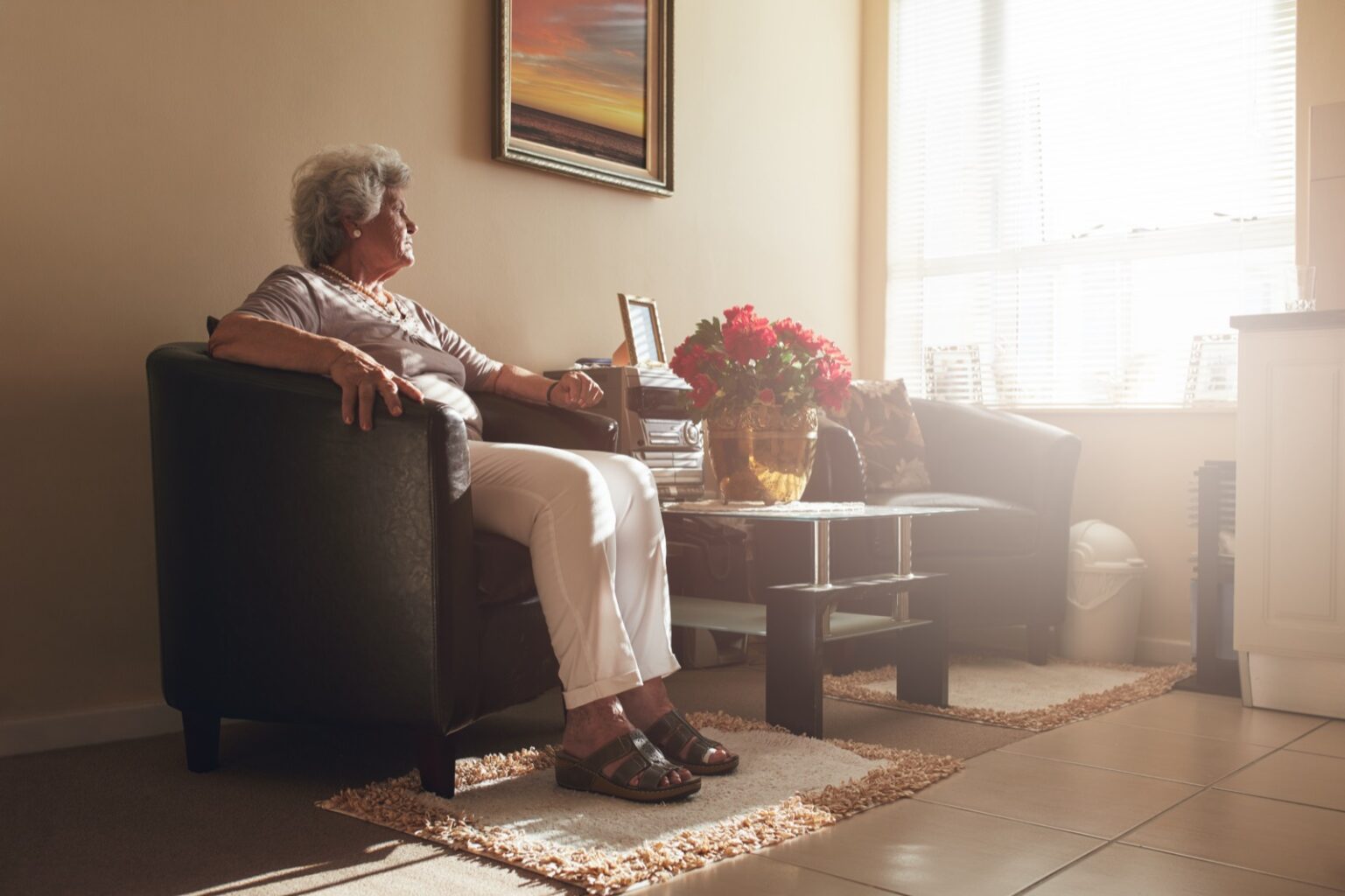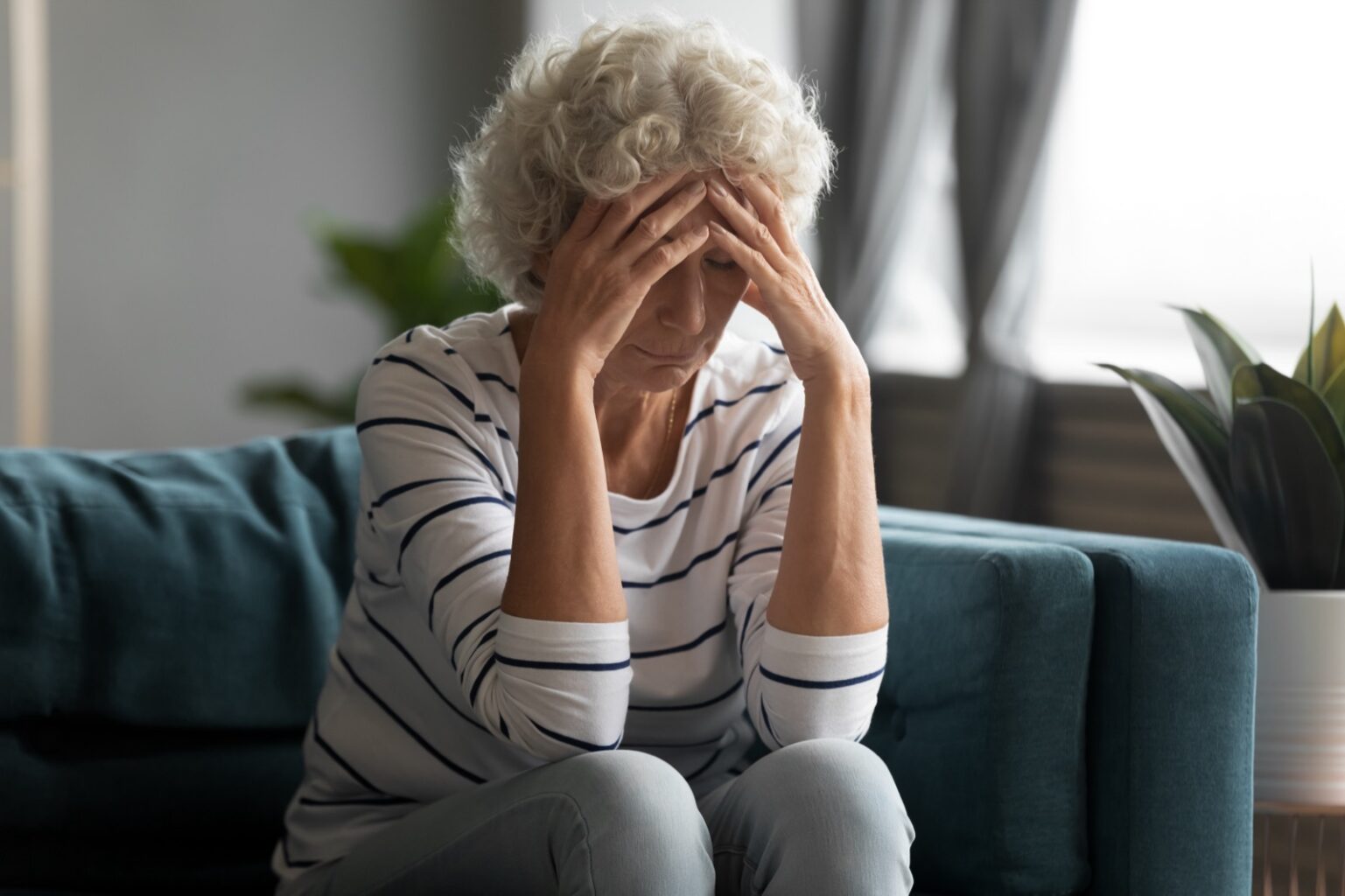If you’ve been asking people to repeat themselves a lot or you keep getting told the music or TV is too loud, you may have hearing loss. You wouldn’t be alone. Statistics Canada estimates over 14 million Canadians, of all ages, have a measurable level of hearing loss. And when you move up into the older adult years, say 50 years old or more, about half the population has measurable hearing loss.
Why does getting a hearing test matter?
On top of the frustration you experience having to ask people to repeat themselves or when you try to guess what was said and you get it wrong, those frustrations are also experienced by those around you. It can be hard on your relationships for sure.
In addition to the risk of relationship breakdown, untreated hearing loss has been associated with a vastly increased risk of developing dementia or depression or having a serious fall that could put you in hospital, and has also been shown to increase hospital usage.
Getting a hearing test annually keeps you informed of your hearing’s status so you know what you’re up against. The longer hearing loss is left untreated, the more your hearing deteriorates. And as your hearing gets worse, the risk levels increase for dementia, depression, falls and more use of healthcare facilities.
How is untreated hearing loss connected to all these risks?
Some people may think these connections between untreated hearing loss and other healthcare issues are purely a case of age catching up. We often associate hearing loss with seniors and increased use of healthcare is also seen as a seniors’ issue. However, hearing loss has no age barriers so these connections go beyond that it’s just the elderly population.
Untreated hearing loss’ connection to relationship breakdown may be the most obvious. For falls, there are four reasons it’s connected. For depression, it’s sort of easy to understand. When you combine falls and depression, it’s even understandable how untreated hearing could increase the use of hospitals and other healthcare services.
But dementia. The why of the connection between untreated hearing loss and dementia is still being investigated. Every year, more information comes to light that more greatly informs us of the hows and whys of this connection.
Learn more about the risk levels and connections to keep yourself in the best health possible.

Relationship breakdown and untreated hearing loss
Aggravation, frustration, worry, anxiety. These emotions aren’t just found in the person with hearing loss; being in a relationship with someone with untreated hearing loss creates these emotions too. Many people with untreated hearing loss feel it’s an individual thing – they’re the only ones involved and impacted. The experience surrounding hearing loss however is a shared experience. It’s shared with spouses, close friends and family even coworkers.
A 2011 survey done for the American Association of Retired Persons (AARP)1 found nearly 50% of those with untreated hearing loss would experience some relationship breakdown and a third would lose touch with family and friends. That’s some pretty staggering statistics.
It’s hard being the partner, friend or coworker of someone who won’t do something about their hearing loss. Constantly repeating themselves, having to deal with conflict caused because conversations were missed or misunderstood, can have a negative impact on relationships.
Intimate relationships and hearing loss
The effects of hearing impairment on significant others is known as a third-party disability. Numerous studies have shown partners experience just as much frustration and anxiety as the person with hearing loss. Untreated hearing loss is a prevalent chronic stressor, both for the person experiencing the hearing loss and their partners. Depression is a risk for both parties in a relationship. A 2023 study found2 some differences though in how partners react to hearing loss.
For men, their wives’ hearing loss, their own hearing loss or both spouses having hearing loss were all associated with increased depressive symptoms. Interestingly, for women, their husband’s hearing loss didn’t increase the prevalence of depressive symptoms.
The disconnection from society, or isolation, that many people with hearing loss choose affects both partners in a relationship experiencing hearing loss. For the hearing partner, this disconnection can cause anxiety, irritation and stress, in addition to the depression and anxiety for the person with hearing loss.
The emotional consequences of leaving hearing loss untreated are profound for the spouse or partner, as much as it is for the person experiencing hearing loss. For many partners, the additional effort of navigating the world and mediating for the partner with hearing loss is tiring – making sure the partner with hearing loss is protected from embarrassment or judgement.
Another report from the UK for the Royal National Institute for Deaf People (RNID) 3 found partners expect the person with hearing loss to take steps to reduce the impact of the hearing loss, essentially to demonstrate they’ve accepted that they have hearing loss and wear their hearing aids. A 2005 report indicates where this acceptance and taking responsibility for the challenges hearing loss puts on a relationship happens, it leads to happier relationships.4
In brief
- 1 in 2 people with hearing loss will experience some relationship breakdown
- 1 in 3 people with hearing loss will lose touch with family and friends
- Partners and spouses expect the person with hearing loss to accept they have hearing loss and do something about it
Depression and untreated hearing loss
Participating in casual chatter, going to movies or concerts, dining out with friends and family – all these can be a real chore for people with hearing loss. As a result, psychologically, hearing loss can create feelings of inadequacy and shame.
Not understanding conversations so they say inappropriate things and being disoriented because they can’t hear their surroundings can both contribute to feeling awkward and out of place. People with untreated hearing loss often isolate themselves out of embarrassment for themselves and their families. In speaking with recipients of the Hear Well Be Well Gift of Hearing program, this writer has heard numerous times about how reducing the amount of contact with other people was done to save their family and friends from embarrassment.
Self-imposed isolation
Those feelings of incompetence, shame and inadequacy frequently end in self-imposed isolation. No more dining out, few, if any, conversations unless forced to participate, no family events, an absence of connection to community. This self-imposed isolation seems an easier way to live than the discomfort of interacting with others but over time, it makes the person feel lonely and depressed.
Social isolation and loneliness are associated with increased rates of death and higher healthcare spending, especially for older adults.

Risk of developing depression
Interestingly, a broad study from Europe published in 2017 found for many, the depression comes first5 , not the social isolation. That’s going to be a bit of a surprise to many people who figured the self-imposed isolation came first, the depression being a result of the isolation. These same researchers suggest increased depression symptoms may be one of the first signs that an older adult is losing their hearing.
The connection between untreated hearing loss and depression has been being researched for over 40 years. Research published in 2019 found there’s a 68% increase6 in the risk of developing depression when hearing loss is left untreated. Another study found that, in lower income groups, there’s twice the risk7 of depression than for the wealthier counterparts. The same study found use of hearing aids was beneficial to alleviating the depressive symptoms. That improvement of symptoms was much more pronounced when people used their hearing aids most of the time compared to those who use them some of the time.
Whether the depression is an early symptom of hearing loss or is a result of self-isolation, there’s no question leading an active life – both physically and socially – is key to overall well-being.
In brief
- 68% increased risk of developing depression when there’s untreated hearing loss
- Lower income groups are at twice the risk of depression compared to their wealthier counterparts
- Hearing aids are beneficial to reducing depression
The risk of serious falls when there’s untreated hearing loss
Having a serious fall is a concern at any age but it’s more of a concern as we age. According to Statistics Canada, falls cause 85% of older adults’ injury-related hospitalizations and over 1/3 of these are admitted to long-term care after they leave hospital.
In addition to the physical injury a serious fall can cause, it also may take away your confidence leaving you hesitant to participate in physical activities.
Statistics Canada reports over 1,800 fall-related visits to the emergency room every day in Canada.
Untreated hearing loss has been shown to contribute to the risk of having serious fall. Just mild hearing loss increases your risk of a serious fall by three times. The risk increases based on the level of hearing loss with severe hearing loss contributing a 10 times increased risk of a fall with serious consequences8.
How are serious falls and hearing loss connected?
Our balance system, otherwise known as the vestibular system, is in our inner ear – the same part of the ear where our hearing centre, the cochlea, is located. Deep in our ears are three semi-circular canals filled with fluid that respond to the rotation of your head and two little organs containing tiny crystals that move in response to gravity.
Hearing and balance share the same path to the brain. This means when something goes wrong in one it can affect the other.
Researchers have suggested a few reasons for the strong connection between untreated hearing loss and falling down, beyond the fact they share the same path to the brain. They include:
- Cognitive overload. It takes a lot of concentration to maintain your balance. When your brain has too many tasks to handle at one time, you get cognitive overload. With untreated hearing loss, you have to use more of your mental resources to hear and interpret speech and sound. This shifts your brain’s focus and leaves fewer resources for maintaining balance.
- Missing auditory cues. Your environmental awareness may be limited when you don’t have access to auditory cues.
- Sound helps us balance. Stable sounds can help us concentrate and can be a focus for us to balance, much like selecting a point on the wall can help you balance in yoga class. But if you can’t hear the stable sounds . . .
- Depression. Depression is linked to increased risk of falls9 and depression is more prevalent in those with hearing loss.
Is there any good news?
Researchers have discovered using hearing aids can cut your risk of a serious fall in half10. When you consider all the ways hearing is connected to our balance and awareness of our surroundings, it makes sense that using hearing aids when you have hearing loss can change your risk of falling.
In brief
- Even mild hearing loss increases your risk of falling by three times.
- Severe hearing loss increases your risk by 10 times.
- Using hearing aids can cut the risk in half.
Dementia risks shocking for those with untreated hearing loss
Hearing loss is at the top of the list of modifiable risks for developing dementia. The World Health Organization suggests up to 8% of dementia cases worldwide could be avoided by treating hearing loss.

A study 11first published in 2017 examined the current research on the connection between hearing loss and dementia. How hearing loss increases the risk of dementia isn’t fully understood however several hypotheses have been shared.
- Hearing loss increases the load on your brain by redirecting resources to processing what is heard (or not heard) rather than thinking processes like memory.
- Hearing loss often leads to social isolation, which is also known as a dementia risk.
- There’s also some thought that there’s a common cause to both age-related hearing loss and dementia.
Another study12 from 2020, suggested reduced sounds getting to the brain cause the brain to stop using those areas usually engaged in interpreting sound. This may lead to those areas shrinking or degenerating, effectively altering the structure of the brain.
How big is the risk?
A 12-year long study13 at Johns Hopkins demonstrated there are actual changes in the brain when there’s hearing loss. In the study, brain scans suggested there’s increased brain atrophy when hearing loss is present. Using fMRI scans, the researchers found when the brain received a distorted or unintelligible message, whether from poor hearing or background noise interfering, the areas related to reasoning, decision-making and memory, rather than speech comprehension, were activated, essentially overloading them and making them work harder.
This same study found:
- Mild hearing loss doubled the risk of developing dementia.
- Moderate hearing loss tripled the risk of developing dementia.
- Those with severe hearing loss had a five times bigger risk of developing dementia.
Can hearing aids make a difference?
There’s more and more evidence that keeping your brain active can deter the development of dementia. Brain scans have shown untreated hearing loss is related to the brain shrinking more quickly. The more the brain is stimulated, the less likely it is that dementia will develop. Using hearing aids has been shown in research to reduce the rate of cognitive decline in older adults by almost 50% over a three-year period14.
In brief
- Mild hearing loss = 2 times greater risk of developing dementia
- Moderate hearing loss = 3 times greater risk
- Severe hearing loss = 5 times greater risk
- Use of hearing aids can slow cognitive decline by up to 50%
Those with untreated hearing loss use more healthcare dollars
Untreated hearing loss has been shown to increase healthcare costs by about 46% compared to the costs for people with normal hearing15. This increased use of medical care started showing up as early as two years after being diagnosed with hearing loss. Following the same groups of people for 10 years, the researchers compared those without hearing loss to those with untreated hearing loss and discovered people with untreated hearing loss experience:
- About 50 percent more hospital stays,
- Nearly 44 percent higher risk for hospital readmission within 30 days,
- 17 percent more emergency department visits and
- Approximately 52 more outpatient visits.
When you consider the health impacts of untreated hearing loss – falls, depression, dementia – the additional burden on the healthcare system isn’t hard to understand. More research needs to be done to firm up the reasons there’s such a great increase in healthcare spending for those with untreated hearing loss however it confirms the importance of treating your hearing loss to the big picture of your health and wellness.
Hearing test makes a difference
There’s no question lots of people deny they have hearing loss. Some are stuck in thinking hearing loss means you’re old. Not true. You seem older when you’re constantly asking people to repeat themselves or frequently saying, “Huh? What? Pardon?” Remember hearing loss is something that impacts all ages, not just older adults.
Getting a hearing test is a great start to take more control over the future of your health and your environment. And remember it also can give an assist in your relationships.
Knowing what you’re dealing with can give you some comfort, rather than worrying about what’s wrong.
If you have loved ones with signs of hearing loss, encourage them to get tested. Remind them, hearing aids don’t make you seem old; asking people to repeat themselves, having the sound up too loud and being confused in conversations – that’s what makes you seem old.
At Hear Well Be Well, hearing test are free so there’s no financial barrier to being informed about your hearing health. What are you waiting for? Book a free hearing test today.
- Geraci, J. (2011). AARP/American Speech-Language-Hearing Association (ASHA), National Poll on Hearing Health Results Summary. Crux Research. ↩︎
- Jessica S. West, Sherri L. Smith, Matthrew E. Dupre. The impact of hearing loss on trajectories of depressive symptoms in married couples. ©2023 Elsevier Ltd. ↩︎
- Melissa Echalier. In it together: The impact of hearing loss on personal relationships. ↩︎
- Anderson, D.l. and Noble, W. Couples attributions about behaviours modulated by hearing impairments: Links with relationship satisfaction. Int J Audiol. 2005 Apr. ↩︎
- Claudia Campos Andrade, Cicero Robertos Pereira, BEdro Alcantara da Silva. The silent impact of hearing loss: using longitudinal data to explore the effects on depression and social activity restriction among older people. © Cambridge University Press 2017 ↩︎
- Blake J Lawrence, Dona M P Jayakody, Rebecca J Bennett , Robert H Eikelboom, Natalie Gasson, Peter L Friedland. Hearing Loss and Depression in Older Adults: A Systematic Review and Meta-analysis. Published March 5, 2019. https://repository.up.ac.za/bitstream/handle/2263/80217/Lawrence_Hearing_2020.pdf?sequence=1 ↩︎
- Dialechti Tsimpida, Evangelos Kontopantelis, Darren M. Ashcroft, Maria Panagioti. The dynamic relationship between hearing loss, quality of life, socioeconomic position and depression and the impact of hearing aids: answers from the English Longitudinal Study of Ageing (ELSA). Published August 12, 2021
https://link.springer.com/article/10.1007/s00127-021-02155-0 ↩︎ - Frank R. Lin, MD, PhD, and Luigi Ferrucci, MD, PhD. Hearing Loss and Falls Among Older Adults in the United States. February 27, 2013. ↩︎
- Namkee G. Choi, PhD, C. Nathan Marti, PhD, Diana M. DiNitto, PhD, and Mark E. Kunik, MD, MPH. Longitudinal Associations of Falls and Depressive Symptoms in Older Adults. The Gerontologist, 2019, Vol. 59, No. 6 ↩︎
- Laura Campos, Allan Prochazka, Melinda Anderson, Alexander Kaizer, Carol Foster, Timothy Hullar. Consistent hearing aid use is associated with lower fall prevalence and risk in older adults with hearing loss. October 2023. ↩︎
- Hearing loss as a risk factor for dementia: A systemic review. Rhett S. Thomson BA, Priscilla Auduong MD, Alexander T. Miller BS, Richard K. Gurgel MD. First published 16 March 2017, Laryngoscope Investigative Otolaryngology. ↩︎
- How Can Hearing Loss Cause Dementia? Timothy D. Griffiths, Meher Lad, Sukhbinder Kumar, Emma Holmes, Bob McMurray, Eleanor A. Maguire, Alexander J. Billig, and William Sedley,Neuron. 2020 Nov 11; 108(3): 401–412. ↩︎
- Alison R. Huang, PhD; Kening Jiang, MHS; Frank R. Lin, MD, PhD; et al. Hearing Loss and Dementia Prevalence in Older Adults in the US. January 10, 2023. ↩︎
- Hearing intervention versus health education control to reduce cognitive decline in older adults with hearing loss in the USA (ACHIEVE): a multicentre, randomised controlled trial. Lin FR, Pike JR, Albert MS, Arnold M, Burgard S, Chisolm T, Couper D, Deal JA, Goman AM, Glynn NW, Gmelin T, Gravens-Mueller L, Hayden KM, Huang AR, Knopman D, Mitchell CM, Mosley T, Pankow JS, Reed NS, Sanchez V, Schrack JA, Windham BG, Coresh J; ACHIEVE Collaborative Research Group. Lancet. 2023 Jul 17:S0140-6736(23)01406-X. doi: 10.1016/S0140-6736(23)01406-X. Online ahead of print. PMID: 37478886. ↩︎
- Nicholas S. Reed, AuD, Aylin Altan, PhD, Jennifer A. Deal, PhD, Charlotte Yeh, MD, Alexander Kravetz, PharmD, Margaret Wallhagen RN, PhD, and Frank R. Lin MD, PhD. “Trends in Healthcare Costs and Utilization Associated with Untreated Hearing Loss Over 10 Years” ↩︎

